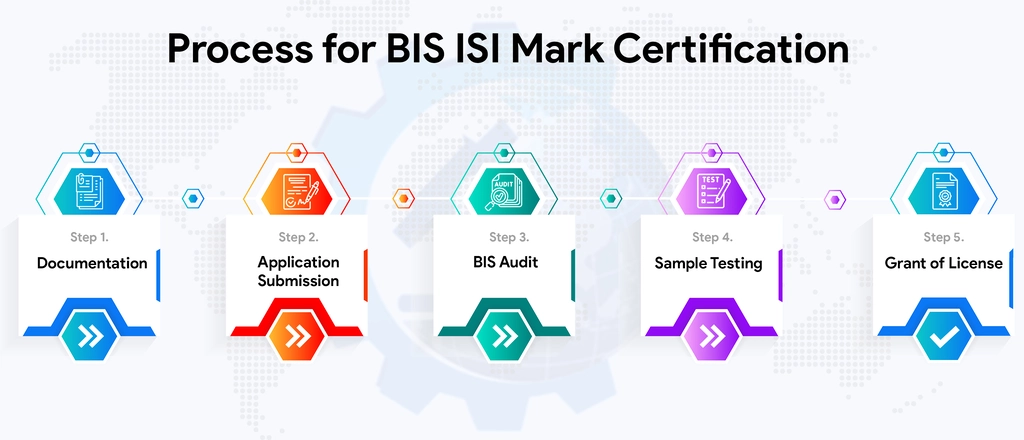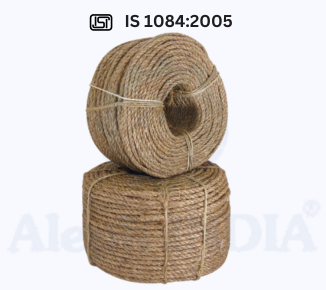BIS CERTIFICATION for Ropes and Cordages (Textiles – Manila ropes) IS 1084
Published Date: September 01, 2024
Introduction
IS 1084:2005 is an Indian standard created under BIS Certification for Manila Ropes and cordages to determine the quality of ropes. In which the ISI mark is given after different tests under the Manak guidelines. These ropes are mostly used for heavy-duty, load shedding, agriculture, construction, etc.In today's market, Manila Ropes have played an important role in various sectors and are making huge profits for the manufacturers.
This is BIS Certification which helps them to perform the different testing of their product and gives ISI mark which are Manufacturers or suppliers are granted a license so that they do not face any problem in importing and exporting.
BIS Certification In today's time, it becomes necessary for manufacturers to get the ISI mark by understanding QCO orders and providing the right product to the market to avoid various types of penalties.
OVERVIEW IS 1084:2005
IS 1084:2005 tracks the required quality and performance of Manila ropes and cordages, covering materials, manufacturing, and test methods The standard ensures it has good resistance, environmental, and strength conditions. It is now employed in maritime and industrial usage. The standard allows manufacturers to comply with national regulations and ensures quality improvement. That will have the trust of stakeholders in the industry. This promotion will enhance the growth of the industry. By meeting the requirements of IS 1084:2005, it strengthens the Manila rope's performance and maintains its outstanding performance as a very stringent performance-based product in the world.
Key highlights
| Product Name | Ropes and Cordages (Textiles – Manila ropes) |
| Applicable Indian Standard | IS 1084:2005 |
| Applicable Certification Scheme | Product Certification Scheme (ISI Mark Scheme) Scheme 1 |
| Applicable Mark: | BIS Standard Mark (ISI Logo) |
| Compliance Requirement | Mandatory |
| Quality Control Order | Click here |
| Ministry | Ministry of Steel |
| Scope as per Standard | This standard prescribes the requirements of the following types of electromechanically made manila ropes: Hawser-laid manila ropes of diameter 6 mm to 128 mm and with linear density from 32 to 11380 ktex. Shroud-laid manila ropes of diameter 8 mm to 128 mm and with linear density from 54 to 11380 ktex. Cable-laid manila ropes of diameter 40 to 144 mm and with a linear density from 1030 to 13105 ktex. |
| Major Country of Import: | Philippines |
Applicable Tests for Silicomanganese IS 1470: 2013
- Manila Fibres
- Yarn
- Strands
- Ropes
- Lubrication
- Rot-proofing Treatment

Note
For Detailed Information about the Procedure for BIS ISI Certification, Visit :
Timeline for BIS Certification
The approximate timeline to obtain BIS certification for Ropes and Cordages (Textiles – Manila ropes) IS 1084:2005 is as follows:
- For Indian Manufacturers (Standard Timeframe – 30 days)
- For Foreign Manufacturers (Standard Timeframe – 180 days)
Benefits of BIS Certification
BIS certification offers several significant benefits:
| Benefit | Description |
|---|---|
| Access to the Indian Market | Facilitates entry into a regulated marketplace. |
| Compliance with Indian Standards | Ensures products meet national safety and quality benchmarks. |
| Enhanced Product Credibility | Builds a reputation for reliability among consumers and partners. |
| Increased Customer Trust | Instills confidence in product quality, leading to higher sales. |
| Benefits for MSMEs | Supports small and medium enterprises in gaining competitive advantage and market visibility. |
Conclusion
BIS certification boosts competitive advantage and trust. ALEPH INDIA helps manufacturers navigate the process, ensuring compliance under the guidelines of BIS Certification
Aleph INDIA has been serving the industry as a single-window operator for all product regulatory compliance. We can assist importers or manufacturers in meeting all criteria for importing or selling a product in the Indian market.
Frequently Asked Questions
International Audits & Participation
Testimonials
BIS REGISTRATION FOR ELECTRONIC & IT PRODUCT
In the era of globalization, world trade is growing rapidly and henceforth, Manufacturing and Import/Export businesses are also growing drastically...View More
BIS CERTIFICATE FOR FOREIGN MANUFACTURER
The Economy of India-the fastest developing economy on the globe with the capabilities that help it matches up with the biggest international...View More
PRODUCT CERTIFICATION SCHEME (ISI MARK) FOR DOMESTIC MANUFACTURERS
Anything a person buys from food to cars, clothes to electronics, branded to unnamed products there is always a question that wanders in one’s...View More
WIRELESS PLANNING AND COORDINATION (WPC)
WPC: Wireless means communication done from one point to another point without the wires and cables. Electromagnetic waves carry the ...View More
BUREAU OF ENERGY EFFICIENCY (BEE) CERTIFICATE
BEE CERTIFICATE: Energy is the future, and its conservation is the way of the bright future. Everyone claims the environment is important...View More
E-WASTE MANAGEMENT
E-waste is one of the world's fastest-growing trash streams. We currently manufacture almost 50 million tones of it each year...View More
View All Services
Request a call back.
Would you like to speak to one of our Senior Technical advisers over the phone? Just submit your details and we’ll be in touch shortly. You can also email us if you would prefer.






























